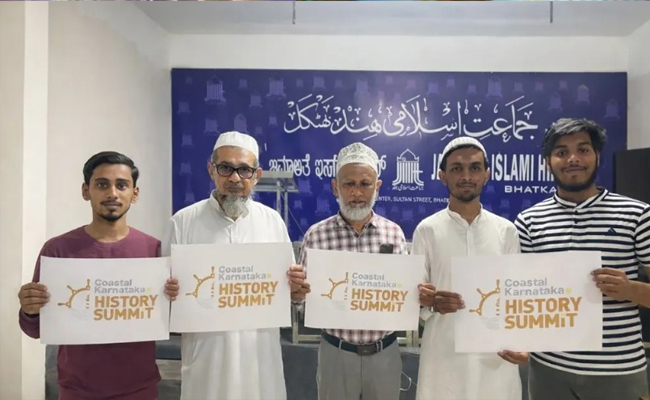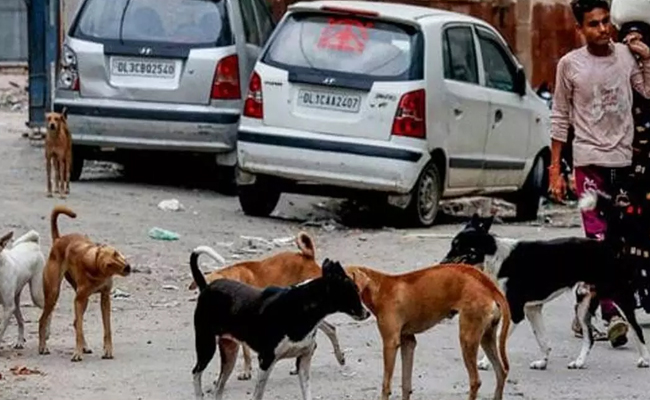Mangaluru: At a time when the state of Kerala was reeling under the debris of increasing COVID-19 fatalities and its government trying to cap those numbers by trying everything they can, the CM Pinarayi Vijayan led government now has an altogether different problem to solve alongside COVID.
In what can turn up as another pandemic-like situation, the fear of the Nipah Virus has gripped not only those in power to control the situation, but also the general public who wants to avoid the situation fearing for life. To make it worse for the people and government of Kerala, the state is facing stiff regulations by neighboring states like Karnataka whose reluctance to give full access to borders and inter-state commutations have grown multiple folds ever since the Nipah Virus broke into the "God’s Own Country".
Dakshina Kannada which shares the border with the state has barred commutation between the district and Kerala till October end, after which the cloud of economic and financial uncertainty is looming large on thousands of households that depend on inter-state commutations for their daily bread.
Amid all this, a big chunk of people is still uncertain about Nipah Virus. Although only a few thousand online forwarded messages on social media platforms have done enough damage to instill fear in the minds of people, credible information on the basics of the Nipah Virus still eludes those smartphones of lakhs of people.
To make it easier for the people to understand the virus and the danger it possess, Vartha Bharati met one of the most sought physicians of KMC Hospital Mangalore, Dr. Haroon Hussain. While the senior doctor gave a handsome amount of information about the virus, he also busted several myths and rumors that have been spread far and wide as a part of WhatsApp University’s syllabus this season.
Below is the excerpt from Vartha Bharati’s exclusive interview with Dr. Haroon Hussain, MBBS, MD, and a senior doctor at the Department of Medicine at KMC Hospital Mangalore.
Q: What are the basics about the Nipah Virus that you think the people should know?
A: Nipah virus (NiV) was first discovered in 1999 following an outbreak of the disease in pigs and people in Malaysia and Singapore. Nipah Virus is found mainly in animals and majorly in bats. If you categorize it further, it is found mostly in what we call ‘fruit bats’. These bats rely on fruits for their diet as the name suggests. So if they eat some part of the fruit and leave the rest on the tree, people sometimes ignore their bite and eat the fruit from the other side. This is the most common tendency of how the virus spreads among humans. The humans get infected by eating those fruits and then the virus spreads from person to person much like COVID. Even pigs are a major reservoir for this virus, so when the infected pigs come into contact with humans, the virus spreads.
Nipah virus infection can be prevented by avoiding exposure to sick pigs and bats in areas where the virus is present, and not drinking raw date palm sap which can be contaminated by an infected bat. During an outbreak, standard infection control practices can help prevent person-to-person spread.
Infected fruit bats can spread the disease to people or other animals, such as pigs. People can become infected if they have close contact with an infected animal or its body fluids (such as saliva or urine)—this initial spread from an animal to a person is known as a spillover event. Once it spreads to people, the person-to-person spread of NiV can also occur.
Q: Do you believe the virus is something people should be worried/panicked about?
A: There is no need to panic about it. But as we live in a ‘Global Village’ now, the risk of spread is at the highest than it ever was. People travel frequently, a person who is in India today will be on the other part of the planet tomorrow, so it spreads like that cross-country. The amount of import-export of products we transact every day is another threat. So the ideal advice will be to postpone travel plans and more importantly to avoid heroics, especially the youngsters, we need to be careful and not careless in dealing with this virus.
Q: Can this end up as a pandemic-like situation in the near future? If yes, how difficult it will be to contain it?
A: Probably not. The government so far has been vigilant about it and it has put in place a very good tracking system and they are taking every measure to ensure the safety of people. But this has to be a two-sided effort, the people will also have a huge role to play if we have to contain the situation. One-sided efforts will not yield desired results. People will have to forfeit their unnecessary travel plans and be very careful and stringent in following protocols set by the authorities.
Q: How do you think people can be cautious about both COVID and Nipah Virus at the same time?
A: The fatality rate in Nipah Virus has been very high whenever it has broken out in history. The fatality rate in the Nipah Virus is more than 70% that means it is safe to say that of the hundred people who get infected, 70 ends up losing their lives. In COVID it is much lesser and we have now developed vaccines for COVID, but there are no vaccines for Nipah Virus anywhere in the world.
So as much as there is no need to panic about it, the Nipah Virus cannot be neglected too. It is no joke.
Q: What should people do when they have symptoms or are infected with the virus?
A: There are only two or three centers in the country right now which can confirm the diagnosis. If it’s confirmed, the travel history of the person is very important. Much like in cases of COVID all the close contacts will have to be isolated and put under strict medical observation. But ‘Prevention is better than cure’ is the principle that needs to be widely followed. Whenever a pandemic breaks out, the usual SOP (Standard Operating Protocol) is the same. Wearing masks, following physical distancing among others, much like COVID protocols. People need to follow it mandatorily.
What is more important is that people should not hesitate to self-report if they have symptoms. They should know they will be committing a blunder by neglecting the symptoms, the whole community will come under huge risk if they choose to neglect it. So they should act like responsible citizens and contact authorities if they feel they are infected or if they have the slightest of the symptoms.
Q: Are all the reports about Nipah Virus that are doing rounds on social media platforms, genuine and true?
A: No. People should avoid using social media as a medium of information. There are media houses and government websites that are providing credible information and people need to only follow them for any information or turn to experts rather than choosing to grab information from social media. Nipah Virus is not a vector-borne disease, it only spread from humans to humans but there are reports on social media that even a mosquito that has bitten an infected person and can infect you with its bite. The report is not true and baseless, this spreads fear and panic among people and needs to be avoided. Only proper media outlets and government information mediums should be followed.
Dr. Haroon Hussain is a senior doctor at the Department of Medicine at KMC Hospital, Mangalore and his area of expertise includes Diabetes, Hypertension, Cholesterol Management, Fever, Infections, Immunization in Adults, Health advice for international travel, Chest pain, and preventive cardiology, among others.
Let the Truth be known. If you read VB and like VB, please be a VB Supporter and Help us deliver the Truth to one and all.
Bengaluru: Customs sleuths on Tuesday arrested a passenger arriving from Bangkok at the Kempegowda International Airport for allegedly trafficking drugs.
During routine checking at the airport, customs officials seized a large quantity of hydroponic cannabis from the passenger’s luggage.
Officials said around 8 kg of hydroponic cannabis was recovered, with its estimated market value pegged at approximately Rs 2.8 crore.
In a separate case on the same day, customs officials recovered about 900 grams of ganja, worth around Rs 31.5 lakh, from another passenger who had arrived from Hong Kong.
According to the officials, both passengers had concealed the narcotic substances inside their luggage in an attempt to evade detection.
The customs department has taken both the accused into custody and have initiated questioning.
A probe in connection with the incident is underway, and legal action is being pursued against them under the relevant provisions of the Narcotic Drugs and Psychotropic Substances (NDPS) Act.





